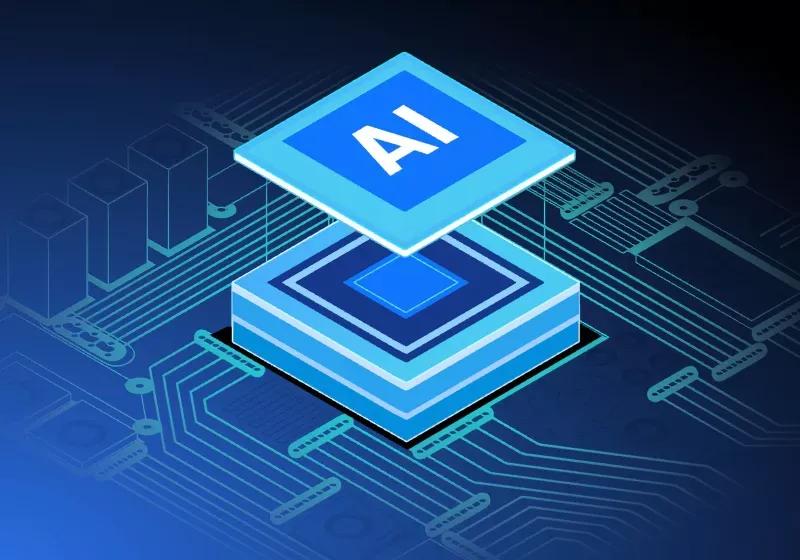Imec CEO Calls for 'Programmable' AI Chips to Address Future AI Challenges
2 Sources
2 Sources
[1]
Top semiconductor lab imec eyes 'programmable' AI chips, CEO says
AMSTERDAM, May 19 (Reuters) - The CEO of imec, one of the world's top semiconductor R&D firms, has said the industry needs to steer towards reconfigurable chip architectures if it wants to avoid becoming a bottleneck for the future generations of artificial intelligence. Rapid AI algorithm innovation outpaces the current strategy of developing specific, raw-power-focused chips, leading to major drawbacks in energy, cost and hardware development speed, CEO Luc Van den hove said in a statement seen by Reuters ahead of its publication. "There is a huge inherent risk of stranded assets because by the time the AI hardware is finally ready, the fast-moving AI software community may have taken a different turn," he said. Some, like OpenAI, have taken the path of building custom chips to speed up innovation, a move Van den hove said was risky and uneconomical for most. The Interuniversity Microelectronics Centre (imec) pioneers many semiconductor breakthroughs that chipmakers like TSMC (2330.TW), opens new tab and Intel (INTC.O), opens new tab often widely adopt years down the line. As the AI industry moves beyond large language models to agentic AI and physical AI for medical or autonomous driving applications, Van den hove sees future chips regrouping all necessary capabilities into building blocks called supercells. "A network-on-chip will steer and reconfigure these supercells so they can be quickly adapted to the latest algorithm requirements," Van den hove said. This will require true three dimensional stacking, a manufacturing technique where layers of logic and memory silicon are bonded together, he added. Belgium-based imec was a significant contributor to the advancement and refinement of 3D stacking, a technology that will be featured in TSMC's A14 and Intel's 18A-PT future nodes. The research and development firm will hold its flagship conference, ITF World, on Tuesday and Wednesday in Antwerp, Belgium. Reporting by Nathan Vifflin in Amsterdam, editing by Milla Nissi-Prussak Our Standards: The Thomson Reuters Trust Principles., opens new tab Suggested Topics:Artificial Intelligence
[2]
Top semiconductor lab imec eyes 'programmable' AI chips, CEO says
AMSTERDAM (Reuters) -The CEO of imec, one of the world's top semiconductor R&D firms, has said the industry needs to steer towards reconfigurable chip architectures if it wants to avoid becoming a bottleneck for the future generations of artificial intelligence. Rapid AI algorithm innovation outpaces the current strategy of developing specific, raw-power-focused chips, leading to major drawbacks in energy, cost and hardware development speed, CEO Luc Van den hove said in a statement seen by Reuters ahead of its publication. "There is a huge inherent risk of stranded assets because by the time the AI hardware is finally ready, the fast-moving AI software community may have taken a different turn," he said. Some, like OpenAI, have taken the path of building custom chips to speed up innovation, a move Van den hove said was risky and uneconomical for most. The Interuniversity Microelectronics Centre (imec) pioneers many semiconductor breakthroughs that chipmakers like TSMC and Intel often widely adopt years down the line. As the AI industry moves beyond large language models to agentic AI and physical AI for medical or autonomous driving applications, Van den hove sees future chips regrouping all necessary capabilities into building blocks called supercells. "A network-on-chip will steer and reconfigure these supercells so they can be quickly adapted to the latest algorithm requirements," Van den hove said. This will require true three dimensional stacking, a manufacturing technique where layers of logic and memory silicon are bonded together, he added. Belgium-based imec was a significant contributor to the advancement and refinement of 3D stacking, a technology that will be featured in TSMC's A14 and Intel's 18A-PT future nodes. The research and development firm will hold its flagship conference, ITF World, on Tuesday and Wednesday in Antwerp, Belgium. (Reporting by Nathan Vifflin in Amsterdam, editing by Milla Nissi-Prussak)
Share
Share
Copy Link
Imec, a leading semiconductor R&D firm, proposes a shift towards reconfigurable chip architectures to keep pace with rapid AI algorithm innovation and avoid potential bottlenecks in AI development.

Imec CEO Advocates for Reconfigurable Chip Architectures
Luc Van den hove, CEO of Imec, one of the world's leading semiconductor research and development firms, has called for a significant shift in the chip industry's approach to artificial intelligence (AI) hardware. In a statement ahead of Imec's flagship conference, ITF World, Van den hove emphasized the need for reconfigurable chip architectures to keep pace with the rapidly evolving AI landscape
1
2
.Current Challenges in AI Chip Development
The CEO highlighted that the current strategy of developing specific, raw-power-focused chips for AI applications is becoming increasingly problematic. This approach is leading to major drawbacks in energy efficiency, cost-effectiveness, and hardware development speed. Van den hove warned of a "huge inherent risk of stranded assets" as the fast-moving AI software community may outpace hardware development
1
2
.The Proposal: Supercells and Network-on-Chip
To address these challenges, Van den hove proposed a new approach for future AI chips:
- Supercells: All necessary capabilities would be regrouped into building blocks called supercells.
- Network-on-Chip: A system that would steer and reconfigure these supercells, allowing for quick adaptation to the latest algorithm requirements
1
2
.
This innovative approach aims to create more versatile and adaptable AI hardware that can keep up with the rapid pace of AI software development.
The Role of 3D Stacking
Van den hove emphasized that implementing this new chip architecture would require advanced manufacturing techniques, specifically "true three-dimensional stacking." This process involves bonding layers of logic and memory silicon together
1
2
. Imec has been a significant contributor to the advancement and refinement of 3D stacking technology, which is set to be featured in future chip designs by industry giants TSMC and Intel1
.Related Stories
Industry Implications and Alternatives
The CEO's statements come at a time when some companies, like OpenAI, are opting to build custom chips to accelerate innovation. However, Van den hove cautioned that this approach is risky and economically unfeasible for most companies
1
2
.Imec's influence in the semiconductor industry is substantial, with many of its breakthroughs often adopted by major chipmakers years later. As such, this call for a shift towards reconfigurable architectures could have far-reaching implications for the future of AI hardware development
1
2
.Beyond Large Language Models
Van den hove also touched on the evolving landscape of AI applications. He noted that as the industry moves beyond large language models to more advanced forms of AI, such as agentic AI and physical AI for medical or autonomous driving applications, the need for adaptable chip architectures becomes even more critical
1
2
.As the AI industry continues to evolve at a rapid pace, Imec's proposal for programmable AI chips represents a potential solution to ensure that hardware development can keep up with the ever-changing demands of AI software innovation.
References
Summarized by
Navi
[2]
Related Stories
Recent Highlights
1
ByteDance's Seedance 2.0 AI video generator triggers copyright infringement battle with Hollywood
Policy and Regulation

2
Demis Hassabis predicts AGI in 5-8 years, sees new golden era transforming medicine and science
Technology

3
Nvidia and Meta forge massive chip deal as computing power demands reshape AI infrastructure
Technology








